|
|

|
|

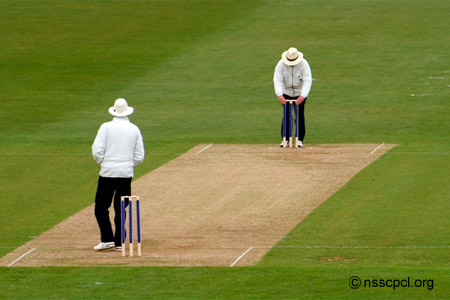
Two umpires are appointed one on each end (bowlers end and strikers end) to control the game. The umpires shall take positions from where they can easily see any act upon which their decision may be required. The umpire at the strikers end may elect to stand on the off instead of leg side of the pitch. The umpires shall change the ends after each side has had one innings.
The umpire should ensure that the game is conducted and the equipments used is strictly in accordance with the laws. They should make sure that the wickets are properly pitched, whether the ground is fit for the play and whether there is appropriate light for play. Umpires shall make frequent and regular inspections of the condition of the ball. If there is any dispute regarding the use of the ball, the umpire shall change the ball after consultation and the ball must be of similar condition to that in use. An umpire may consult with the other umpire on a point of fact which the latter may have been in a better position to see and shall then given his decision. If the doubt remains after consultation, the decision shall be given in favour of the batsman. All disputes shall be determined by the umpires. The umpires decision is final and he may alter his decision.
The third umpire or the TV umpire as he also known is an off-field umpire who usually gives his decision when the on-field umpires are unsure. The third umpire sits off the field, with a television replay monitor. The field umpire can use his discretion to refer a close decision to the third umpire to refer to dismissal of a batsman, catches or boundaries via a wireless set or a signal light system.
The third umpire looks at various TV replays from different angles and comes to a conclusion by pressing the appropriate signal. A red light indicates that the batsman is out and a green one otherwise. In the event that the TV umpire too is unable to get a clear picture, the benefit of the doubt again goes to the batsman. Over the years, the TV umpire has been asked to assist in dismissals such as run-outs, stumped, caught and hit-wicket.




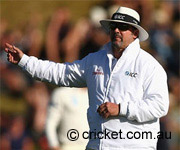
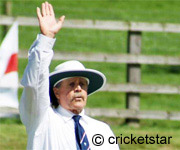
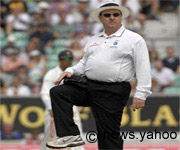
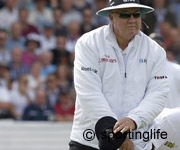
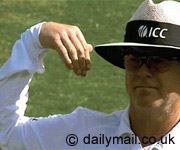
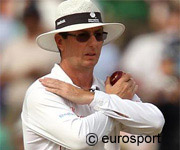
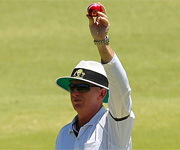
The umpire shall call and signal dead ball when
a serious injury to a player or an umpire occurs
in a case of unfair play
the bowler drops the ball accidentally before the delivery or the ball does not leave his hand
the striker is not ready to receive the ball and makes no attempt to play it and before the delivery
one or both bails fall from the striker's wicket
A Match referee is an official who administrates a Professional cricket match, by watching the game from outside the field. The referee makes no decisions of relevance to the outcome of the game, but he has the power to fine players and/or teams for unethical play. In professional games, these penalties are monetary fines and/or suspension from subsequent matches.
|
|